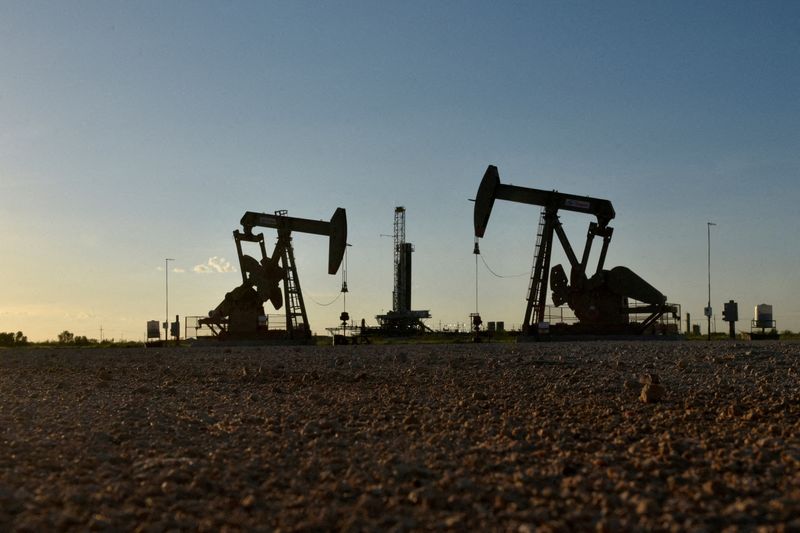By Shariq Khan
NEW YORK (Reuters) -Oil prices fell on Thursday after central bankers in the U.S. and Europe signaled caution over further easing of monetary policy, fanning concerns that weak economic activity could dent demand for oil next year.
Brent crude futures fell by 51 cents, or 0.7%, to settle at $72.88 a barrel.
U.S. West Texas Intermediate crude futures for January delivery fell 67 cents, or 1%, to $69.91 per barrel and expired on settlement. The more active WTI February contract fell 64 cents to settle at $69.38 per barrel.
The Federal Reserve cut rates by a quarter percentage point as expected on Wednesday, but Chair Jerome Powell warned that stubborn inflation would make the U.S. central bank more cautious about cutting rates next year.
The U.S. dollar rose to a two-year high, making oil more expensive for buyers holding other currencies.
"A less accommodative Fed in 2025 than initially expected has markets adjusting their expectations," Alex Hodes, analyst at commodities brokerage StoneX, said.
In the UK, Bank of England policymakers held interest rates steady on Thursday, while officials disagreed over how to respond to a slowing economy. Also on Thursday, the Bank of Japan kept ultra-low interest rates as U.S. President-elect Donald Trump's vows to impose tariffs cast a shadow over the country's export-reliant economy.
OIL IN SURPLUS NEXT YEAR
Softening economic activity could deepen a slowdown in oil demand growth next year. Brent futures prices have shed more than 5% so far this year, setting up a second consecutive annual loss, as a faltering Chinese economy weighed heavily on crude oil demand.
Energy transition measures have also hit demand sharply in China, the top oil importer. State-backed energy giant Sinopec (OTC:SHIIY) on Thursday said it expects China's petroleum consumption to peak in 2027 as fuel demand weakens.
The oil market is widely expected to be in a surplus next year, with J.P. Morgan analysts predicting that supply will outpace demand to the tune of 1.2 million barrels per day.
Oil supply could tighten next year if Trump, a Republican, delivers on campaign promises of cracking down on Iranian oil exports.
Democratic President Joe Biden's administration has also ramped up sanctions on Iranian entities, with three vessels involved in trading Iranian petroleum and petrochemicals sanctioned on Thursday.
Such actions, however, have had little effect on oil prices, J.P. Morgan analysts noted, adding that Trump is unlikely to prioritize policies that would push energy prices higher.

Brent crude prices are forecast to average around $73 a barrel in 2025, according to a Reuters tally of 11 brokerages that have issued price targets.
Some support for the oil market came as U.S. crude stocks declined by 934,000 barrels in the week to Dec. 13. Still, that was smaller than the 1.6 million-barrel drawdown analysts had forecast in a Reuters poll. [EIA/S]